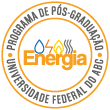Banca de DEFESA: ANDREI DIAS RENTE
Uma banca de DEFESA de MESTRADO foi cadastrada pelo programa.STUDENT : ANDREI DIAS RENTE
DATE: 21/10/2023
TIME: 10:00
LOCAL: Remoto
TITLE:
RENOVABIO - IMPACTS ON THE MACRO AND MICRO ENVIRONMENTS OF BRAZILIAN BIOFUELS
PAGES: 145
BIG AREA: Outra
AREA: Planejamento Energético
SUMMARY:
A National Biofuels Policy that offers predictability and economic sustainability; with environmental and social effects; committing to a significant reduction in greenhouse gas emissions; and, mainly, free of burdens and taxes, both for the producer and for the distributor and all the stakeholders involved. In this sense, in 2017 the decarbonization program, named RenovaBio, was launched. It focuses on increasing the consumption of biofuels and their expansion in the Brazilian energy matrix. The term biofuel is used for any fuel derived from biomass (sugarcane, soy, among others) and, together with renewable technologies, become fundamental with regard to the future of the planet. In this context, Brazil is highly competitive and prosperous in the production of biofuels, due to its abundance and diversity of raw materials. It should be noted that, in Brazil, the production of ethanol from sugarcane is an example of an economically viable activity. The objective of this research is to investigate the impacts that the RenovaBio Program will provide to Brazil as a National Biofuel Policy in the macro and micro environments of the biofuel sector. For this discussion, a survey will be carried out in the literature and documents related to the biofuel sector. With this, it is expected to increase understanding about the economic development of the biofuels sector and the impact that carbon credits can have in the social and economic scope.
COMMITTEE MEMBERS:
Presidente - Interno ao Programa - 1977178 - REYNALDO PALACIOS BERECHE
Membro Titular - Examinador(a) Interno ao Programa - 1548098 - GILBERTO MARTINS
Membro Titular - Examinador(a) Externo à Instituição - ROSANE MARIA SOLIGO DE MELLO AYRES - PUC-CAMPINAS
Membro Suplente - Examinador(a) Interno ao Programa - 1985515 - ANTONIO GARRIDO GALLEGO
Membro Suplente - Examinador(a) Externo à Instituição - RHODINEY VAZ MARTINS




